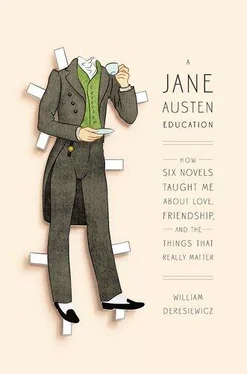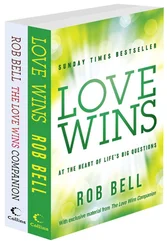Yet what of that modernist novel par excellence, the work that formed the very core of my identity as a reader: James Joyce’s Ulysses ? As any English major can tell you, Ulysses also celebrates the everyday. With it, Joyce sought to create a work that was comparable in artistic majesty and cosmic scope to the great epics of Homer, Virgil, and Dante, the summit of Western literature, but at its center he placed, not a heroic figure like Achilles or Odysseus, but the most unremarkable man he could think of, a Jewish advertising agent named Leopold Bloom—a sad sack, a cuckold, a loner, a loser. The novel’s epic grandeur comes instead from the symbolic structures that Joyce builds around him, starting with the title. Unbeknownst to the man himself, Bloom becomes a modern-day Ulysses, his single day’s journey around Dublin a contemporary equivalent, in miniature, of his predecessor’s ten years of wandering among gods and monsters.
The gesture is exhilarating, even ennobling. Like Austen, Joyce was saying that every life, including yours, is heroic in its own way. But the reason Ulysses had never brought me to the recognitions that Emma did was precisely the means by which Joyce had chosen to say it. So obtrusive were those symbolic structures, so ostentatious were Joyce’s artistic effects, that you finally got the sense that Bloom’s importance had nothing whatsoever to do with Bloom and everything to do with his creator. Bloom’s robes were borrowed; it was not his life that was worthy of our notice after all, but the artistic treatment to which that life had been subjected. The figure Bloom’s story ultimately magnifies is Joyce himself—the one incomparable artist, not the everyman. From this perspective, the message of Ulysses was the very opposite of Austen’s. Ordinary life is important only because of what a James Joyce can do with it. Aside from that, your life isn’t very important at all.
As it happens, someone once tried to tell me about a theory she had heard that Emma itself—by critical consensus Austen’s greatest work—was designed to be a kind of epic, too, Austen’s subtler contribution to the same high tradition that Joyce would so loudly seek to enter a century later. The picnic episode, where Emma hit bottom, morally speaking, was supposed to be the novel’s version of the hero’s descent to the underworld, the central convention of Western epic, and so on and so forth. This, keep in mind, was a fan of Austen who was making me this argument; to her, it exalted her favorite author to the status of the big boys. But to me, it utterly missed the point of what Austen was trying to do—even, in a sense, disparaged it. We don’t need to pretend that Austen’s novels are really epics in disguise in order to value them as highly as they deserve. She didn’t need to play the same game as the big boys. Her small, feminine game was every bit as good, and every bit as grand. Austen glorified the everyday on its own terms—without the glamour of Joyce, and modernism, and epic archetypes, and the whole repertoire of epic conventions. What she offered us, if we’re willing to see it, is just the everyday, without amplification. Just the novel, without excuses. Just the personal, just the private, just the little, without apologies.
There was one more thing about my life that had to change, now that I’d read Emma : my relationships with the people around me. Once I started to see myself for the first time, I started seeing them for the first time, too. I began to notice and care about what they might be experiencing, and they began to develop the depth and richness of literary characters. I could almost feel along with their feelings now, as we talked, feel the contours of them as they tried to express them to me. Instead of a boring blur, the life around me now was sharp and important. Everything was interesting, everything was meaningful, every conversation held potential revelations. It was like having my ears turned on for the first time. Suddenly the world seemed fuller and more spacious than I had ever imagined it could be, a house with a thousand rooms that now lay open to explore.
Above all, I started paying attention to what the people around me might be feeling and experiencing in relation to me —how the things I said and did affected them. Surprise, surprise, a lot of those things really pissed them off. If you’re oblivious to other people, chances are pretty good that you’re going to hurt them. I knew now that if I was ever going to have any real friends—or I should say, any real friendships with my friends—I’d have to do something about it. I’d have to somehow learn to stop being a defensive, reactive, self-enclosed jerk.
I was talking with one of those friends one day around this time. She was an old girlfriend from college, someone I knew I had not been very nice to back in the day, and she was telling me about one of her other friends, how she’d been feeling lately that they were no longer as intimate as they once had been. As I listened to her talk about a relationship that had clearly been far closer than any I had ever experienced, I started to get more and more agitated, until I finally had to break in. “Well,” I demanded, “what does intimacy mean?” It wasn’t a rhetorical question. I suddenly realized that it was terribly important, and that I didn’t know. And then, with the most plaintive sense of bewilderment and loss—as if there were this giant thing out there that had been going on for years that I’d just discovered I was totally missing out on but had no clue how to find—I added, “Are we intimate? Is this intimacy, what we’re having right now?” I really had no idea, but the look on her face said it all. “You poor bastard,” it told me. “Of course we’re not. Of course this isn’t.”
Well, it just sat there, that realization, like a lump in my gut—sat there for weeks. I didn’t know what to do with it, how to get rid of it, how to dig myself out of the hole I’d just discovered I was in. But I knew that I couldn’t live like that anymore. By the end of the school year, I gathered up the courage to talk to my girlfriend and tell her that we had to break up. Even if I was beginning to understand what a real relationship should look like, we still didn’t have very much in common, and besides, I had botched this one so badly there was no way to start over. (In fact, she had figured out that we needed to break up a long time before I did and was just as relieved to be done with it.) Being alone wasn’t going to be easy after such a long time, but I knew that if I was ever going to get anywhere as a human being, that would have to be the first step. Or no, that wasn’t the first step. The first step had been reading Emma .
Chapter 2
pride and prejudice growing up
Those first years in graduate school, I lived in a dingy little university apartment that I shared with a random series of business students who’d been assigned to the same space. They would go to corporate-sponsored happy hours and come back flushed with cocktails and job prospects, or bring their friends back to the apartment and whoop it up in front of the TV. I’d hole up in my room, burrowing like a hamster. And quite a little den it was. My desk was a slab of wood over two filing cabinets; my bed was a pancaked old futon that I rolled right out on the floor. A hard chair, a narrow bookcase, a secondhand computer—that was pretty much it. I would sleep till noon, then stay up reading until four or five in the morning, blocking the glare from the security lights in the airshaft with an old woolen blanket that hung from a couple of nails I had pounded into the window frame. When it was time for my 3:00 A.M. dinner of ramen noodles or English-muffin pizza, I’d wait a few seconds after turning on the kitchen light, to give the roaches a chance to hide.
Читать дальше












